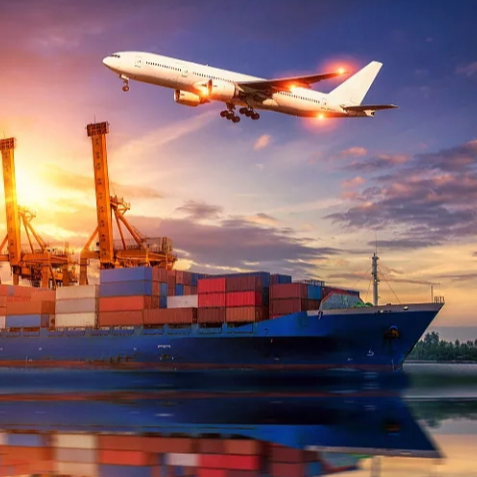In any trade, especially international trade, the mode of transportation is an important factor. It affects not only shipping costs but also the profit margins of traders who have to pay for shipping. Therefore, buyers and sellers must decide on the shipping method in advance and consider its estimated cost in their trade contracts.

To ensure you and your business partners choose the correct shipping method, consider the following factors.
- Shipping cost: As mentioned above, the cost is one of the main factors in determining the shipping method, as it affects the total cost of the goods and trade profits. It is important to note that, in addition to actual freight charges, shipping costs include shipping insurance, handling charges (at various loading and unloading points), and inland transportation costs (if applicable). So, sea shipping, the cheapest shipping method, would be ideal.
Cost is an important factor in determining the shipping method, but it is not the only factor. Other factors need to be considered to choose the best shipping method for the goods that need to be shipped.
- Cost of goods: The cost of transporting goods is also a decisive factor in choosing a mode of transport. If the goods being shipped are low-value goods, then it is better to choose sea freight as it is a cheaper mode of transportation.
- Type of cargo: The weight and size of the cargo are also important factors in choosing the type of transportation. Sea transportation is best if you are dealing with heavy machinery, bulk cargo, dry bulk, machinery spare parts, marble and stone, and other heavy materials. Air shipping is a safer option if you’re trading small but valuable low-weight materials such as gems and jewelry, pharmaceuticals, other medical products, and emergency supplies.
- Nature of the goods: When deciding on the mode of transport, it is necessary to consider the nature of the goods – time-sensitive, perishable or non-perishable, hazardous or non-hazardous, as well as the rules of transport of these products in the trading country.
- Importer’s application: As mentioned above, the mode of transportation, especially the goods that meet the two modes of transportation, should be decided through consultation with the importer to ensure the smooth completion of the trade.
- Urgency: Some shipments cannot be shipped by air. However, for goods that either mode of transport can ship, the urgency of the need is another factor when deciding on the mode of transport. Here, if the requirement is urgent, air freight is the better choice, and if there is enough delivery time, sea freight will be the better choice. Sometimes, especially in the case of bulk orders, exporters may also consider splitting shipments – they can send some by air to ensure immediate needs are met and the rest by sea.
Sometimes, the goods you trade may fall into more than one of the above categories. For example, goods may be perishable and bulky. Or it can be non-perishable but time-sensitive. In such cases, when choosing the mode of transport, it is advisable to consider factors that may affect the marketability of the goods or omissions that may violate any terms or requirements of the contract so that the importer may cancel the contract or refuse to accept the goods.
DDPFORWORLD-Professional freight forwarder in China
DDP for World is a full-service and shipping forwarder dedicated to assisting our clients in focusing and growing their businesses. We do DDP shipping since 2015 by handling home décor, Pet products, battery, power banks, DG cargo, general cargo and Amazon FBA forwarding service. We make your shipping easier and faster by Sea, Air, Express, Truck or Railway. If you have any questions or needs about freight forwarders, please feel free to contact us, we will serve you wholeheartedly.
Contact DDPFORWORLD:
Email: info@ddpforworld.com
